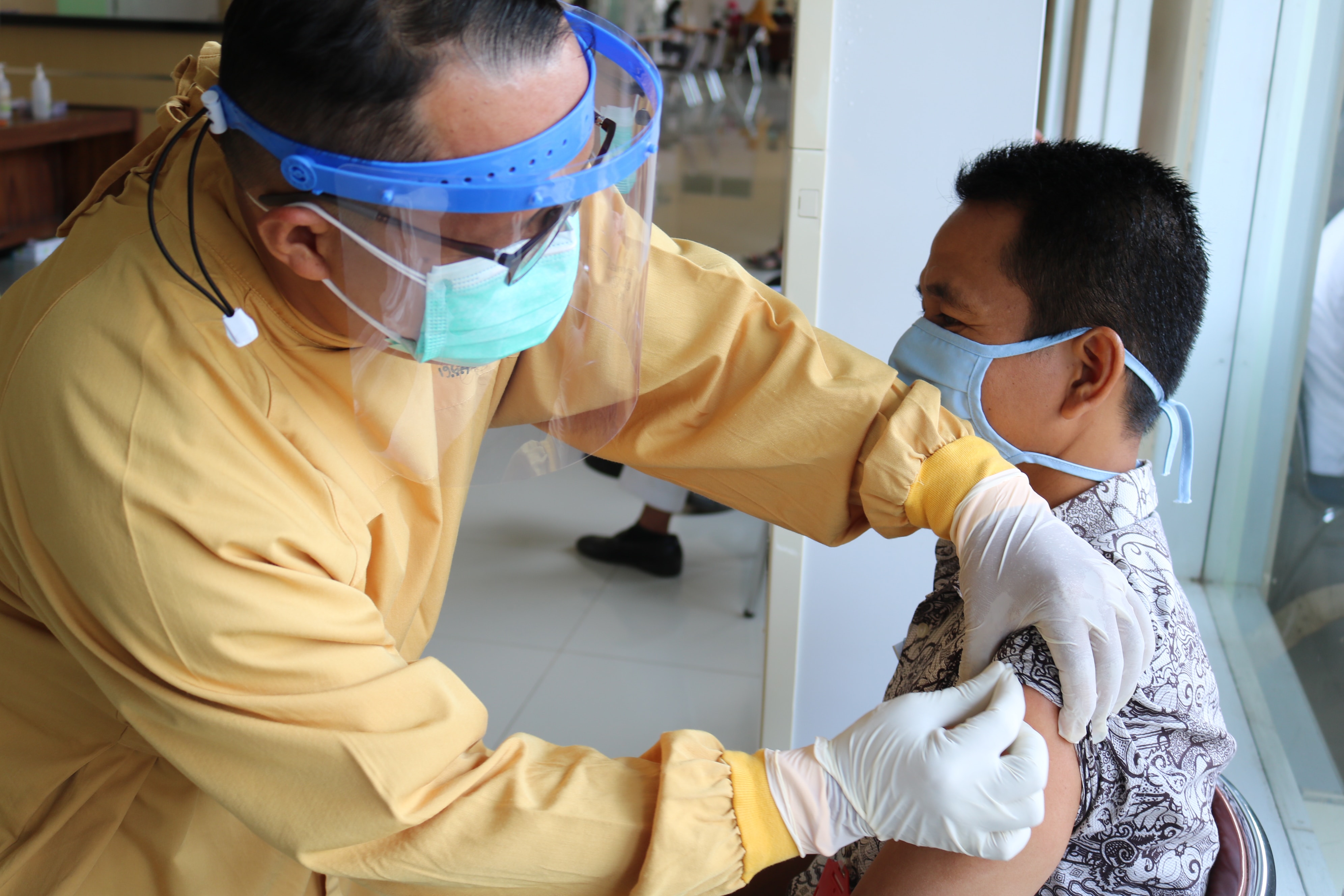On Thursday, the World Health Organization (WHO) announced that the international health emergency concerning the widespread mpox outbreak, a disease similar to smallpox, has been lifted. This comes after a significant decrease in cases over recent months. The disease had perplexed medical experts worldwide as it spread across over 100 countries last year.
In July of the previous year, WHO's Director-General, Tedros Adhanom Ghebreyesus, categorized mpox, also identified as monkeypox, as a global health crisis, disregarding the advice of WHO's expert committee. The unique method of disease transmission, predominantly through sexual contact in nations that hadn't previously reported such cases, demanded increased scrutiny. The majority of those affected were men identifying as gay, bisexual, or having sexual interactions with other men. It was the largest recorded outbreak of mpox.
Tedros confirmed in a media session on Thursday that the substantial reduction in recent cases, almost a 90% drop in the last quarter, has alleviated immediate concerns. "We have made consistent strides in managing the outbreak by applying HIV control strategies and closely collaborating with the most impacted communities," Tedros shared. He further stated that the anticipated adverse reaction against the communities most impacted by the outbreak largely did not occur.
What is Mpox -Related Article-
This announcement was made a week after the WHO stated that the most severe phase of the COVID-19 pandemic had ended and that it should now be addressed like any other respiratory illness.
Mpox has been prevalent in parts of central and west Africa for several decades. In these regions, the disease is primarily contracted from wild rodents. However, large-scale outbreaks beyond the African continent, or easy human-to-human transmission, were not documented until May of the previous year when numerous epidemics were reported in Europe, North America, and other regions.
Common symptoms of mpox include a rash, fever, headache, muscle pain, and swollen lymph nodes. The skin lesions can persist for up to a month. The disease spreads through close physical contact with an infected individual or their personal items, like clothes or bedsheets. Generally, most people can recover without medical intervention.
Researchers eventually determined that the unusual outbreak was linked to sexual activity among gay and bisexual men at social gatherings in Spain and Belgium. This marked a significant deviation from the typical pattern of mpox spread in Africa, where outbreaks have not been reported across borders.
Soon after Tedros declared monkeypox a global emergency, the number of cases in Europe and North America began to decline. There was no evidence of extensive transmission beyond men who were gay, bisexual, or sexually active with other men. European health officials reported that 98% of mpox patients were men, and 96% of these men had sexual relations with other men.
Rich nations promptly distributed mpox vaccines, and severe illness cases were comparatively infrequent. The rate of reported cases has since significantly reduced in Europe and North America. According to WHO, more than 87,000 cases and 140 deaths have been reported globally. Still, in the last week, WHO reported a 64% increase in cases compared to the previous week, with the majority of cases in the Americas and the Western Pacific.
The U.S. reported the largest outbreak, with over 30,000 cases. The U.S. Centers for Disease Control and Prevention recently announced an investigation into a recent surge in cases across the nation, including in Chicago. Experts have previously cautioned that mpox could become a persistent sexually transmitted disease, as its spread could indefinitely continue in certain populations.
In central and west Africa, the number of mpox cases continues to climb, largely propelled by an upswing in Congo. The WHO reported a roughly 7% increase in new infections in the last fortnight, and Tedros mentioned that the exact transmission routes were still unclear. Cases have also been reported in the Central African Republic, Nigeria, Liberia, and Ghana.
Wealthier nations, such as Britain, the U.S., and Germany, rapidly initiated vaccination programs for their vulnerable populations once the mpox outbreak was identified. However, Africa didn't receive its first major batch of vaccines until December of the previous year.
Dr. Michael Ryan, the WHO emergencies chief, criticized the global community for its lack of support in curbing the epidemic last year.
Q&A Section:
Q: What is the mpox disease?
A: Mpox, also known as monkeypox, is a disease similar to smallpox. It has been prevalent in parts of central and west Africa for several decades. Common symptoms include a rash, fever, headache, muscle pain, and swollen lymph nodes. The disease spreads through close physical contact with an infected individual or their personal items.
Q: How was the recent global mpox outbreak different?
A: The recent global mpox outbreak marked a significant deviation from the typical pattern of spread. This outbreak was linked to sexual activity among gay and bisexual men at social gatherings in Spain and Belgium, predominantly affecting men who identified as gay, bisexual, or were sexually active with other men.
Q: How has the global mpox outbreak been managed?
A: Wealthier nations like Britain, the U.S., and Germany rapidly initiated vaccination programs for their vulnerable populations once the mpox outbreak was identified. WHO applied HIV control strategies and closely collaborated with the most impacted communities to manage the outbreak. As a result, the disease has seen a significant decrease in cases over recent months.
Q: What was the largest recorded outbreak of mpox?
A: The U.S. reported the largest outbreak of mpox, with over 30,000 cases. This occurred during the recent global outbreak of the disease, which was declared a global health crisis by the WHO's Director-General.









